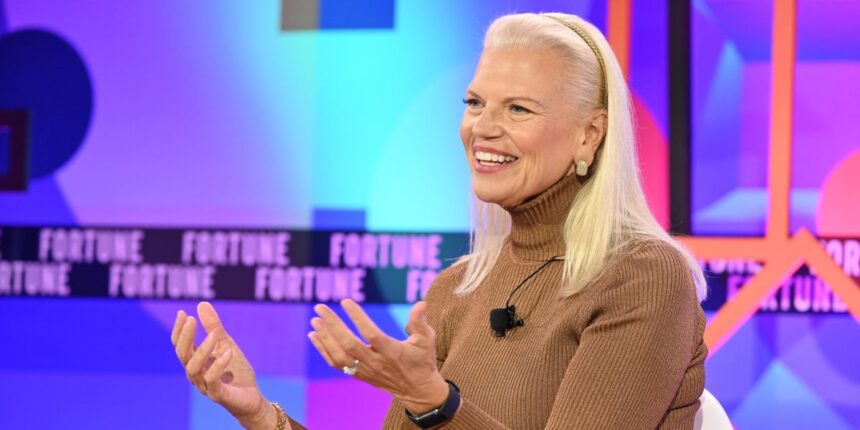
Former IBM CEO Ginni Rometty believes that when it comes to putting people to work, practical skills are more useful than expensive degrees.
Rometty explained why companies should hire for skills over degrees in an interview with Fortune’s Ellie Austin at the Most Powerful Women Summit in Laguna Niguel, Calif.
“Access and aptitude are never equal,” Rometty said. “Where you start should not determine where you end.”
This drive for economic opportunity and education has influenced Rometty’s career significantly.
As she assumed the role of CEO at IBM, she recognized the importance of not only driving innovation and growth within the company but also ensuring that opportunities extended to a broad and diverse talent pool.
Her commitment to this approach was also made evident when IBM made its groundbreaking “New Collar” initiative, which sought to hire and train employees who want to make a career change (regardless of education).
“65% of people do not have a college education like most of us. 80% of Black Americans don’t have a college education. There’s no time to put them all through, yet they have valuable skills,” she said, adding that she believes this “country will come alive again” if those without a college education are given a chance. “All people want, is a better future for their family, their kids.”
The 65-year-old former CEO has been named one of Fortune‘s #1 “Most Powerful Woman” multiple years in a row, in great part to her 40-year career at IBM.
The importance of being vulnerable
Rometty’s most significant regret isn’t about missed innovation or unrealized profits.
“I spent a lifetime not talking about personal things. And I think being vulnerable is one probably one of the most powerful tools for change that you have,” Rometty said. “I would go back way earlier and had been far more vulnerable decades ago.”
In her latest book, “Good Power: Pioneering Success from Humble Beginnings to Fortune 500 CEO,” Rometty reflects on her life. She came from a family of strong women who had faced significant adversity. Her grandmother losing two husbands to her mother raising a family on her own after her father left the home. This upbringing instilled in her the belief that one is never a victim, even in the face of difficult circumstances.
“This idea, that you are never a victim, when you have nothing, you have power,” Rometty said. “That idea is what has kind of stayed with me, that it doesn’t matter how bad the situation is. There’s always a way forward. And that’s how I look at it. Don’t complain. We all get handed our circumstances.”
“I was handed IBM at a time when it was most tumultuous of change, and I knew how deep it would be to have to change it,” Rometty said. “So I think that’s what I learned. And I learned that there is always a way forward. And in that’s what we’re all here to do.”
In 2019, during Rometty’s tenure, IBM made its largest ever acquisition to date by purchasing the enterprise software company Red Hat for a whopping $34 billion, which helped her land the 4th spot on the Most Powerful Women list that year.








